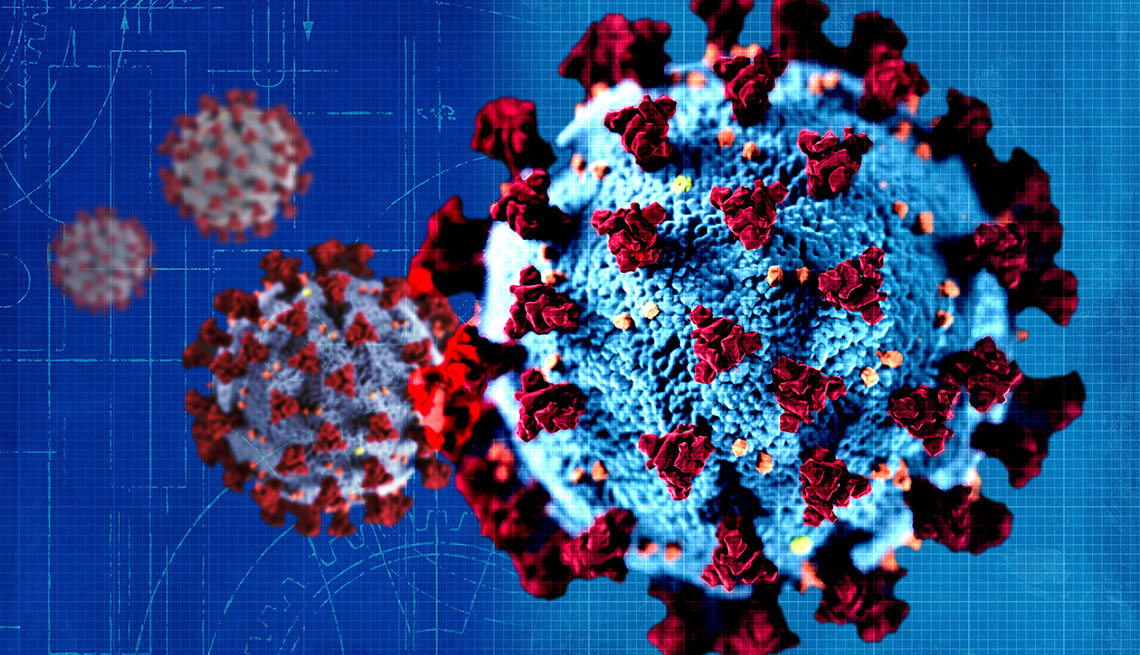
What to know about the delta coronavirus variant
- Select a language for the TTS:
- UK English Female
- UK English Male
- US English Female
- US English Male
- Australian Female
- Australian Male
- Language selected: (auto detect) - EN
Play all audios:

5. YOU’LL NEED TO KEEP YOUR MASK HANDY The CDC announced on July 27 that fully vaccinated individuals should wear a mask in public indoor settings in areas where COVID-19 transmission is
“high or substantial” —about 85 percent of the country falls into this category. The new recommendation is a reversal from guidance issued in mid-May. And the reason has to do with delta.
Emerging research shows that while still rare, it is possible for vaccinated people to contract COVID-19. And if they’re infected with the delta variant, they may carry as much virus as an
unvaccinated individual. This high viral load, as it’s called, suggests “an increased risk of transmission,” CDC Director Rochelle Walensky said in a statement. Meaning that while a fully
vaccinated person with a delta infection may not show symptoms of illness, they could transmit the virus to others, including more vulnerable populations. “If you know you're in a
situation where you'll be coming in contact with people who might be carrying the virus, it's always best to have another layer of protection, like a mask or some level of social
distancing,” Pekosz says. Timothy Brewer, M.D., a professor of medicine and epidemiology at the University of California, Los Angeles (UCLA), says there's no good evidence to suggest
that vaccinated individuals need to mask up when they're outside. And so far, no guidance from the CDC suggests this is necessary. A key point, experts say, is to pay attention to
what's happening in your area. If vaccination rates are high where you are, there's less of a risk. “The more you're exposed to people who are unvaccinated, that possibility
of getting infected increases,” El-Sadr says. Keep this in mind, too, as you travel this summer — especially considering that a significant share of U.S. counties have vaccination rates
under 30 percent, according to CDC data. "If the risk increases, why not do something to help mitigate that risk? Mask wearing is an easy” solution, Pekosz says. 6. DELTA WON'T BE
THE LAST VARIANT TO POP UP Not only does vaccination help prevent infection and illness from the delta variant and others out there (there are currently four “variants of concern”
circulating in the U.S.), but vaccination also helps to keep new and potentially more dangerous variants from popping up. That's because every time the virus jumps to a new person, its
chances of a mutation increase. “But if we break the cycle of transmission and decrease the number of infections in a community, that is the best defense against the evolution and the
development of these new variants,” El-Sadr says. 7. BE VIGILANT, NOT ALARMED While the delta variant’s rise to dominance is concerning, “there's no reason to be alarmed,” El-Sadr says
— especially since the vaccines can protect people from infection and prevent serious illness. “That's important. I don't want people to be absolutely panic stricken about this,”
she adds. The advice of experts: Get vaccinated if you haven't already, and if you're holding out on your second shot in a two-dose series, go back and complete it. Also, if
you're sick, stay home — even if you are vaccinated, UCLA's Brewer says. “And remember to wash your hands after you're been out and try to maintain your physical distancing.”
Finally, “use your judgment,” El-Sadr says. “If you're in a crowd that makes you feel uncomfortable, especially when you don't know whether people are vaccinated or not, it's
prudent to put a mask on to protect yourself.” Doing so will also protect others around you, should you get infected and unknowingly pass it on, El-Sadr adds. _Editor’s note: This article,
originally published July 2, 2021 has been updated to reflect new information._ _Rachel Nania writes about health care and health policy for AARP. Previously she was a reporter and editor
for WTOP Radio in Washington, D.C. A recipient of a Gracie Award and a regional Edward R. Murrow Award, she also participated in a dementia fellowship with the National Press Foundation._
